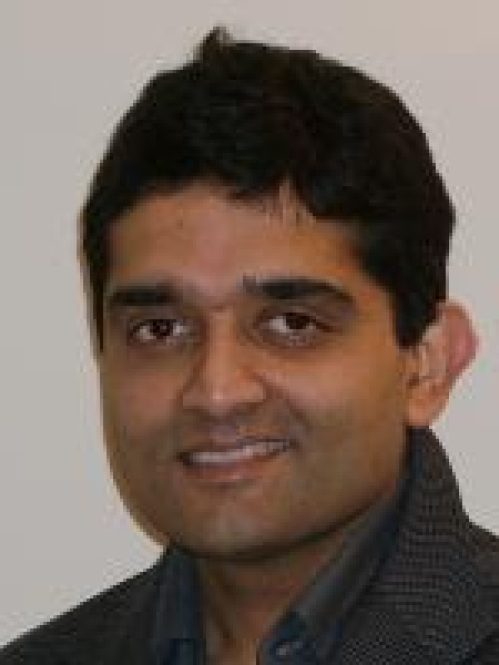Narayan B. Mandayam

Research Interests
• Resilience in Smart Cities
• Prospect Theory in the Design of Cyberphysical Systems
• Privacy and Security for Internet of Things
• Energy Efficient Internet of Things
• End-User Behavior and the Smart Grid
• Microeconomics of Information Centric Networks
• Noncontiguous Spectrum Access and Software Defined Networks
• Modeling of Social Knowledge Creation
• Visual MIMO Networks and Computational Photography
Bio
Narayan B. Mandayam is a Distinguished Professor of Electrical and Computer Engineering at Rutgers University, where he also serves as Acting Director of the Wireless Information Network Laboratory (WINLAB). He served as ECE Chair from July 2016-June 2022. His recent research interests include passive spectrum coexistence, machine learning for enhancing physics-based models, enabling privacy in IoT, building resilience in smart city infrastructures, cyber-physical systems and their security as well as modeling and analysis of trustworthy knowledge creation on the internet. His recent work has also focused on the use of prospect theory in understanding the psychophysics of end-user behavior on cloud security, wireless data networks and the smart grid. Dr. Mandayam pioneered the application of microeconomic principles to the radio resource allocation problem in wireless data networks. The fundamental connections made in his work between the efficiency of resource allocation and interference management using “pricing” (a form of policing), form the basis of radio resource management algorithms that are used in real-world wireless networks.
His research contributions have been recognized with the 2015 IEEE Communications Society Advances in Communications Award (given to the most impactful paper in the preceding 15 calendar years) for his work on power control and pricing, the 2014 IEEE Donald G. Fink Award for his IEEE Proceedings paper titled “Frontiers of Wireless and Mobile Communications” and the 2009 Fred W. Ellersick Prize from the IEEE Communications Society for his work on dynamic spectrum access models and spectrum policy. He is also a recipient of the Peter D. Cherasia Faculty Scholar Award from Rutgers University (2010), the National Science Foundation CAREER Award (1998), the Institute Silver Medal from the Indian Institute of Technology (1989) and its Distinguished Alumnus Award (2018). He is a Fellow and Distinguished Lecturer of the IEEE.
Education
- B.Tech. (Hons) Electrical Engineering, Indian Institute of Technology, Kharagpur, 1989
- M.S. Electrical Engineering, Rice University, Houston TX, 1991
- Ph.D. Electrical Engineering, Rice University, Houston TX, 1994